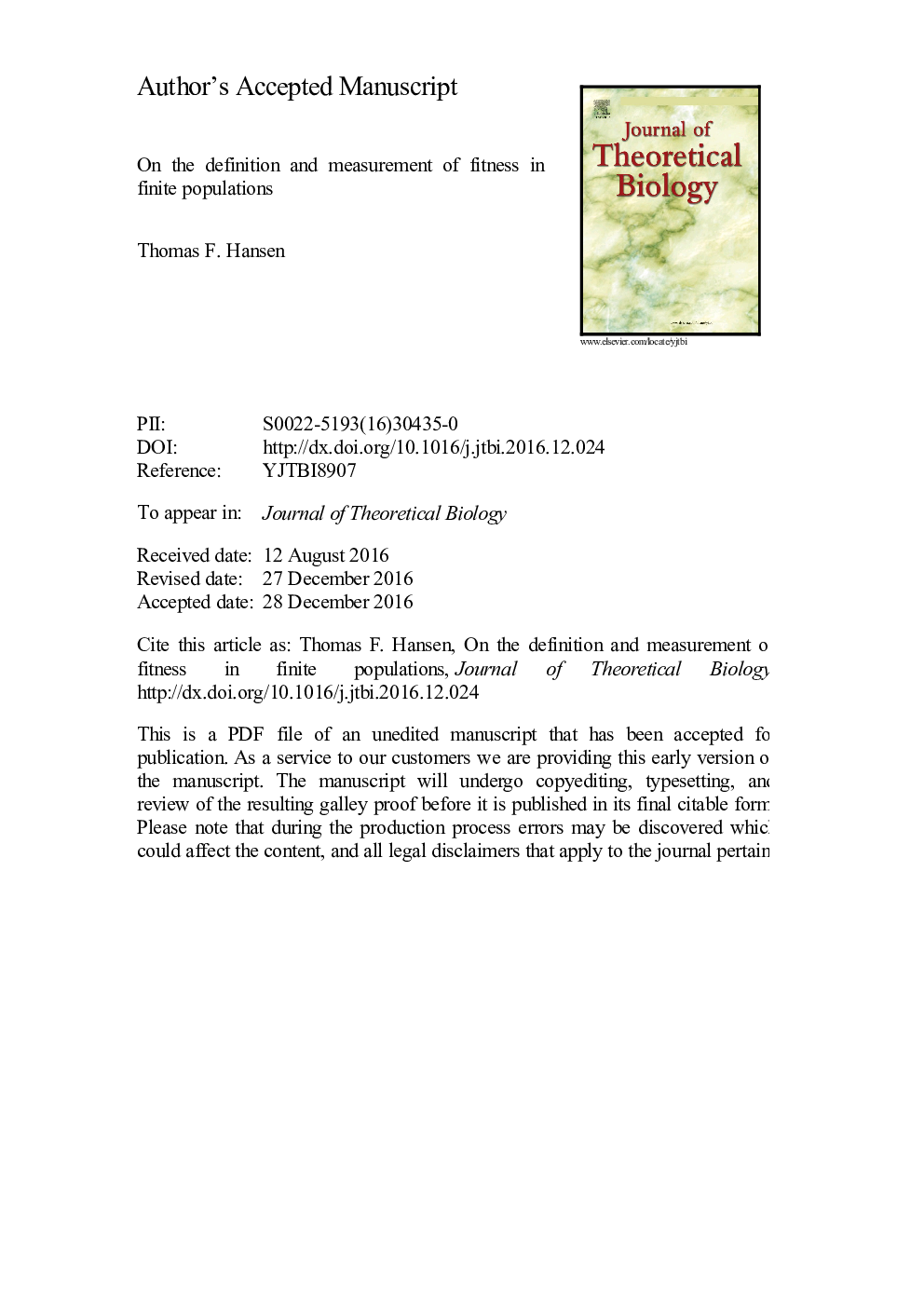| Article ID | Journal | Published Year | Pages | File Type |
|---|---|---|---|---|
| 5760121 | Journal of Theoretical Biology | 2017 | 28 Pages |
Abstract
I argue that some standard accounts of fitness in finite populations are both inaccurate and conceptually misleading. I show that the usual population-genetics conceptualization of fitness as the ratio between amounts of a type after selection and before selection works just as well in finite as in infinite populations. Fitness then becomes a random variable, and selection can be conceptualized as any difference in the distribution of this variable while genetic drift can be conceptualized through realized variation in the variable. I derive exact equations for and novel approximations to the mean and variance of relative fitness, approximations for selection gradients in finite populations, and an expression for the variance effective population size in the presence of selection.
Related Topics
Life Sciences
Agricultural and Biological Sciences
Agricultural and Biological Sciences (General)
Authors
Thomas F. Hansen,
